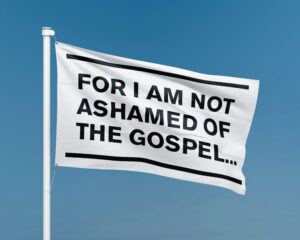By Ken Yates
INTRODUCTION
June has been designated LGBTQ+ Pride Month. It is a time when we are called upon to recognize the contributions that lesbian, gay, bisexual, transgender, and queer citizens have made in our country. We are to support them as they express their pride in their lifestyles. The month will be filled with events honoring them across the country. There is even a special multi-colored flag used in the celebrations. The flag will be prominently displayed in many of our most successful businesses, our government buildings, and during athletic contests. Mountains of merchandise will be sold with the colors of the flag and its logo on them. It will be practically impossible to avoid what will be going on in this regard.
All of this began in 1999 when President Bill Clinton declared June to be Gay and Lesbian Pride Month. Then from 2009 to 2016, President Barack Obama declared June LGBT Pride Month. President Biden declared June LGBTQ+ Pride Month in 2021.
Almost everybody in this country is able to remember a time, not very long ago at all, when these kinds of things would be unthinkable. Even though that is the case, those who feel uncomfortable or strange about these activities will be made to feel that they are the ones who are out of step. Some will even be called derogatory names if they do not “share the pride.” There will be a strong social pressure for everyone to express pride in how far we have come in our attitudes towards these lifestyles.
The Bible, however, tells us it is healthy to feel uncomfortable about these developments.
PRIDE IN SINFUL ACTIVITIES IS NOT TO BE CELEBRATED
In Romans 1, Paul speaks about homosexual practices in his day (Rom 1:26-27). He even goes on to explain that there are those who take pride in them. These people engage in these acts and encourage others to do the same (1:32). But Paul does not share the high opinion of such things held by many in the society in which he lived.
He saw such things as a perversion of the created order. They were degrading to those involved in them. Such activities were destructive to those individuals and to society itself. Even though he observed many of the same things we see today, one wonders what he would have thought about a society devoting a whole month to publicly honor them. My guess is that he never saw a flag glorifying what he describes as degrading activities waving over homes, businesses, and athletic events. I sometimes wonder how the world of the first century pagan Roman Empire compares to the sexual climate of the United States today.
I believe Paul would have been a little taken aback if he lived today and observed what is happening. The pride promoted concerning these activities is even pushed upon young children in our schools. The innocence of these vulnerable little ones is being attacked.
It should be noted that Paul does not stop with homosexuality when he discusses the sins that were prevalent in his world. People were also proud of their heterosexual sins outside of marriage and were proud of their greed, their arrogance, their gossiping, and jealousies, just to name a few.
The idea that a whole month would be set aside to honor homosexual sins would have been just as strange to Paul as having a month designated to celebrate those who are addicted to pornography. Imagine a month in which we celebrated all adulterers. Try to imagine a flag of many different colors which promoted the idea that we could express our greed and jealousies towards others in many different ways. To make matters worse, all of these destructive things would be encouraged and applauded. It is appropriate to look at such scenarios and wonder what in the world is going on when a society rejoices over certain sins Paul describes in Romans 1.
It would take Paul some time to let all this sink in. He would not approve, but he would realize that such is the nature of man in his flesh. What man celebrates is not what honors God. Paul would agree with those who do not applaud what is going on and feel uncomfortable about it. He would not join in with showing pride in these things.
Many are familiar with Paul’s view of these sinful activities. However, most are not aware that he was proud of something else. He mentions it right before he discusses homosexuality and the other sins he lists in Romans 1. He would not wave a rainbow-colored flag and proclaim the pride people are told to feel during LGBTQ+ Pride Month. But he did take pride in proclaiming another message.

PAUL’S GOOD NEWS
Even though Paul looked at the world in which he lived and observed many things going on that were destructive, he had some really great news. As is well known, the Greek word for “gospel” means “good news.” Paul said he had a gospel to declare.
What is more, he says that he is not ashamed of this good news (Rom 1:16). Everybody who studies Romans agrees that this is a figure of speech. Paul uses a negative to state a positive. When he says he is not ashamed of it, he is using an understatement. It means he is extremely proud of it. If he could, he would make a flag out of it, wave it around, and put it on top of every building he
could find.
There is a contrast here, of course. Man, in his flesh, is proud of his sinful activities, whatever they may be. We are certainly seeing that during the month of June. Paul, however, says as believers in Jesus Christ, we should not be proud of such things, but we should be proud of the good news we have to share because of the Lord.
But what is that good news?
IT IS MORE THAN SIMPLY GOING TO HEAVEN
When most people see the word “gospel” in the Bible, they automatically think it means what is necessary for a person to “go to heaven when he dies.” But it almost always means something else. In the book of Romans, it is the good news that in Christ, God has given us the power to live godly lives. This is available to all who have believed in Jesus Christ for eternal life. They are declared righteous by God because of that faith. The Lord has given them the Holy Spirit, and through that Spirit they no longer are enslaved to the power of sin or their flesh.
All of this is supported by Free Grace Theology. Eternal life is a free gift that can never be lost and is given at the moment of faith. We come just as we are. Anyone, including LGBTQ+ folks, can be born again simply by believing in Jesus for that free gift. We are not saved by self-reformation. We are saved by grace through faith apart from works (Eph 2:8-9).
But the believer receives so much more than the mere guarantee of eternal security. Through the Spirit we have been set free to serve the Lord. If we do, not only will we be in the kingdom of God, but we will also be greatly rewarded when the kingdom comes. This will include reigning with Christ when He comes again (Rom 8:17).
This is the message of which Paul was proud. He refers to it as containing the very power of God. That power is available to every believer, enabling him to live in a godly manner. Paul wanted those in Rome to know about these wonderful truths.
THE WORLD’S MIXED-UP VALUES
How sad it must have been for Paul to have this message of God’s power and grace, a message he was so proud to announce, be ignored by most people in the world in which he lived. But even sadder was the realization that those in the world were proud of the sin that dominated their lives.
Those sins were contrary to the created order and brought destruction. Paul’s message brought eternal life and eternal rewards and enriched the lives of those who believed and acted upon the words he taught. Paul looked around and saw people who were enslaved to their sinful lusts, while he proclaimed a message that would set them free.
CONCLUSION
A flag is a representation of an idea. All around us in the month of June we will see a flag that expresses pride over something that should cause those carrying it anything but pride. The ideas connected with that flag do not build up. They tear down.
But Free Grace Theology is something we can be proud of. It is good and beneficial to those who hear and believe it. Wouldn’t it be great if the world heard and understood? They could even make some kind of flag representing the wonderful ideas contained in the message. They could plant that flag on every building and in every business.
Of course, that will never happen.
But we can take pride in that good news. Jesus offers eternal life as a free gift through faith. For those who believe, the very power of God dwells within them. They do not have to serve the sinful lusts of their flesh. They can live by the power of Christ as they wait for His soon return.
That is not a message just for June. For those of us who have heard, understood, and believe that message, let us be proud of it. We may not have or even need a colorful flag, but let us realize that every month is Free Grace Theology Pride Month.
______________________
Ken Yates retired as a Lt. Col. from the Army after 20 years as a chaplain. He and his wife, Pam, live in Columbia, SC, but will soon move to Indianapolis to be around their grandkids. Ken leads the GES international ministry.




